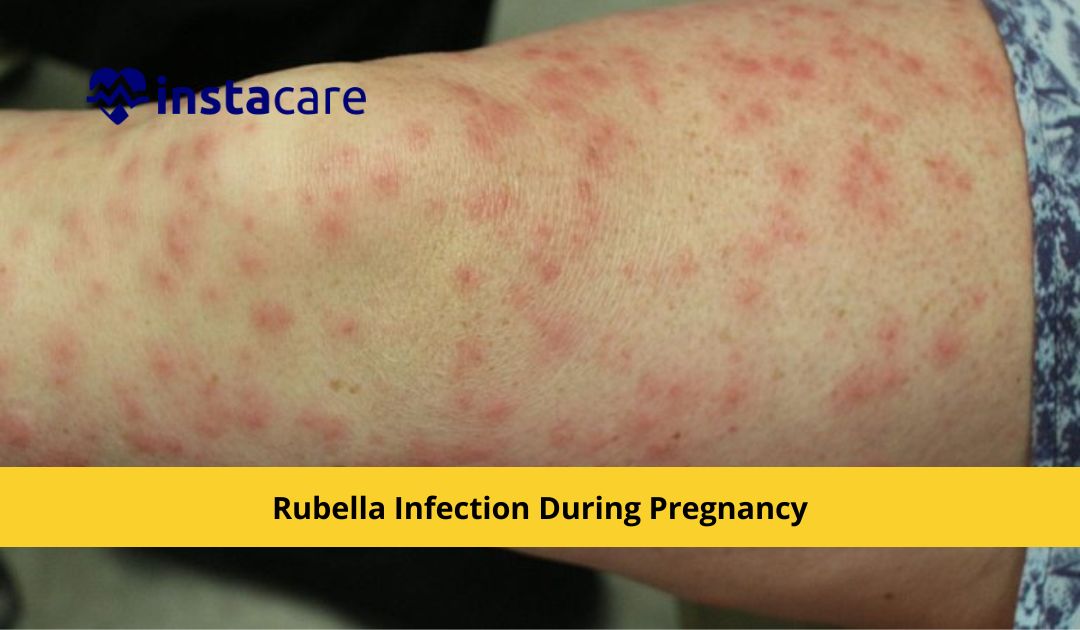The virus is known as rubella. Also known as German measles, is highly contagious. That can be dangerous for pregnant ladies and their babies. To confirm the safety of both themselves and their unborn children. pregnant women must understand how rubella affects pregnancy. At the point when pregnant ladies get tainted. Rubella can pose serious dangers to the mother and her unborn child. This infection can cause difficulties that could hurt the child's development and well-being. Thus, finding out about the effect of rubella during pregnancy is truly significant.
Expected mothers need to play it safe. Also, look for
clinical guidance to safeguard themselves and their little ones from this
disease. Understanding how rubella acts during pregnancy assists moms with
pursuing informed decisions to guarantee a sound excursion for them as well as
their infants.
What is Rubella?
The rubella virus is the main way that respiratory droplets spread the disease. At the point when a tainted individual hacks or sniffles. Its side effects ordinarily seem gentle in the two kids and grown-ups. Portrayed by fever, a particular rash, sore throat, and enlarged lymph hubs.
This viral disease frequently appears with inconspicuous
side effects. That might not prompt immediate concern. However, when contracted
during pregnancy, rubella's implications can become severe. Its symptoms might
resemble those of a common cold or flu. Creating a challenge in diagnosing it
accurately without proper testing.
Symptoms of Rubella
In most instances, rubella symptoms stay mild or might even
go unnoticed, especially in healthy individuals. Yet, when a pregnant woman
contracts rubella, the risks heighten. The symptoms may masquerade as typical cold
or flu symptoms. Complicating the identification process without adequate
testing methods.
Risks During Pregnancy
For pregnant women, contracting rubella poses escalated
risks. The infection can incite serious difficulties, possibly prompting
unsuccessful labor, stillbirth. or the fetus developing congenital rubella
syndrome (CRS).
Rubella during pregnancy presents significant dangers to both the mother and the creating child. These dangers highlight the basic requirement for mindfulness, preventive measures, and brief clinical consideration.
Understanding the possible dangers and side effects of rubella
becomes fundamental, especially for hopeful moms, guaranteeing convenient
discovery and suitable clinical consideration, accordingly protecting the wellbeing
and prosperity of both the mother and the unborn youngster.
How Rubella Affects the Baby
At the point when a lady contracts rubella during the
underlying trimester of pregnancy, the hatchling faces the most noteworthy
gamble. Intrinsic Rubella Disorder (CRS) represents a huge danger, possibly
causing serious birth surrenders. These difficulties incorporate heart
anomalies, hearing hindrance, vision issues, scholarly handicaps, and defers
being developed. During this critical stage, rubella can have long-term effects
on the child's health and quality of life.
Potential Complications
Rubella disease during pregnancy prompts confusion that can
endure all through a youngster's life, significantly influencing their
well-being and prosperity. These complications underscore the critical
importance of preventive measures to avoid the profound and lasting
consequences of rubella infection.
Vaccination Importance
The MMR (measles, mumps, rubella) vaccine stands as a highly
effective preventive measure against rubella. Confirming immunity through
vaccination before conception becomes paramount. This step not only safeguards
the mother but also protections the developing baby from the potential risks
associated with rubella contagion during pregnancy. Vaccination emerges as a
crucial tool in safeguarding the health and future of both the mother and the
unborn child.
Precautions During Pregnancy
When planning pregnancy or missing rubella immunity. Seeking
vaccination advice from a healthcare professional is vital. Throughout
pregnancy, minimizing contact with symptomatic individuals and following to
good hygiene practices significantly reduces the risk of rubella infection.
These precautions serve as protective shields for both the hoping mother and
the developing baby. Ensuring a safer environment.
Testing for Rubella
Regular prenatal screenings include valuations for rubella
immunity. In cases where immunity is absent, additional precautions. And
consistent monitoring are strongly recommended to prevent potential exposure
during pregnancy. This proactive method aids in early detection and effective
management. Safeguarding the well-being of both the mother and the fetus.
Managing Rubella During Pregnancy
For pregnant women identified with rubella. Medical
attention prioritizes symptom management and closely monitoring the baby's
growth. Swift intervention and attentive medical supervision play a crucial
role in minimizing potential risks and complications for the unborn child,
ensuring a healthier consequence.
Conclusion
Rubella during pregnancy can extremely harm both the mother and the growing baby. It's crucial to know the dangers. Prevent it with things like vaccination, and getting advice from doctors. These steps are super important in shielding against this damaging infection. Understanding how risky rubella can be, taking precautions like getting vaccinated. And talking to doctors is key to keeping the mom-to-be and the baby safe from this infection's harmful effects.


